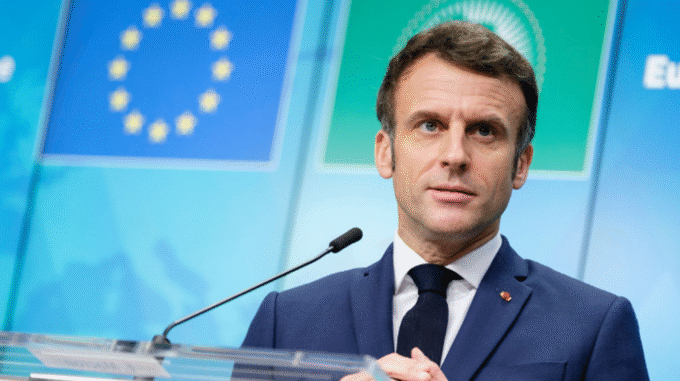“Coalition of the Decisive”: Macron announced an urgent call with Zelensky and European colleagues amid demands and threats of new sanctions against Russia

On Monday, May 12th, French President Emmanuel Macron made an important statement, announcing his intention to hold a phone conversation in the second half of the day with Ukrainian leader Volodymyr Zelensky, as well as with colleagues from other European countries. He outlined the purpose of this dialogue as coordinating a unified position regarding recent developments in the context of the war in Ukraine, as well as responding to the ultimatum for a 30-day ceasefire issued by the "Big Four" countries — Germany, France, the United Kingdom, and Poland. Macron's statement was cited by French media, including the newspaper Le Figaro and the news agency "European Truth." According to the French president, this conversation aims to define "clear frameworks" for further actions and to deliver an unequivocal message — either Russia is genuinely committed to seeking peace, or its pursuit of negotiations is an imitation, necessitating a strengthening of sanctions. Accordingly, in European capitals, there is tense preparation for a possible scenario: in case Russia refuses to agree to a 30-day truce, new, maximum sanctions will be introduced. Specifically, Berlin has already warned that if the situation in Ukraine is not stabilized by the end of this Monday, Germany, along with its allies, will begin preparatory work for the implementation of additional sanctions against Russia. Following the statements from Paris, the Kremlin remained silent on the proposal for a pause in hostilities but announced its intention to hold direct negotiations with Kyiv — in Istanbul, at a meeting scheduled for May 15. At the same time, the Kremlin emphasizes that talks with the Ukrainian side should occur without ultimatums and pressure. Sources in the German government added that if by the end of Monday the Ukrainian Armed Forces and the Ukrainian government cannot confirm a full ceasefire across the country, Berlin and its European partners will begin active preparations for a new round of sanctions. This is yet another signal of increasing tension and Europe’s desire to maximize pressure on Moscow to force a return to negotiations. In response to these hints and ultimatums, the Kremlin stated that “talking with Russia in the language of ultimatums is impossible.” Kremlin representatives emphasize that this is a complex diplomatic process, and any ultimatums only complicate the situation and delay the possibility of reaching a peace agreement. At the same time, Moscow remains cautious and expresses willingness to dialogue, but without any direct conditions. Thus, the situation in Ukraine is becoming increasingly tense. It is already evident that decisions to pursue sanctions, diplomatic negotiations, and attempts to find compromises are crucial for further stability in the region. Calls for Russia to demonstrate seriousness and a desire for peace, as well as threats of new sanctions, show that the West is no longer willing to stay on the sidelines and wait for developments. At the same time, the question is increasingly pressing: is the Kremlin ready to make concessions, and what steps could later ease tensions and bring about the long-awaited peace?

